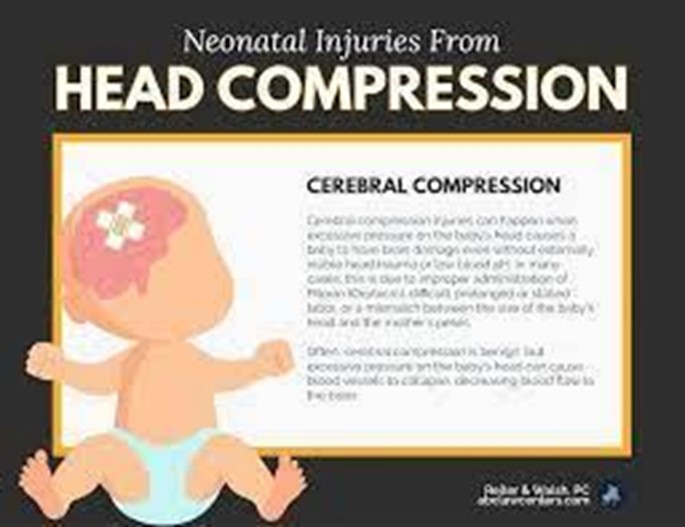A nurse is caring for a client who is in active labor. The nurse notes early decelerations of the FHR on the fetal monitor tracing. The nurse should identify that which of the following conditions causes early decelerations in the FHR?
Fetal hypoxemia.
Cord compression.
Uteroplacental insufficiency.
Head compression.
The Correct Answer is D
Choice A rationale:
Fetal hypoxemia is associated with late decelerations in the fetal heart rate (FHR) tracing. It occurs when the fetus experiences a decreased supply of oxygen, typically due to placental insufficiency or maternal hypotension.
Choice B rationale:
Cord compression can lead to variable decelerations in the FHR tracing. It occurs when the umbilical cord is compressed, restricting blood flow to the fetus temporarily.
Choice C rationale:
Uteroplacental insufficiency causes late decelerations in the FHR tracing. It refers to an inadequate blood flow between the uterus and placenta, resulting in reduced oxygen supply to the fetus.
Choice D rationale:

Head compression is the correct answer for early decelerations in the FHR tracing. It happens during contractions when the fetal head is compressed by the maternal pelvis, leading to a temporary vagal response that slows the heart rate.
Nursing Test Bank
Naxlex Comprehensive Predictor Exams
Related Questions
Correct Answer is A
Explanation
Choice A rationale:
Assisting the client to void is a priority intervention in this situation. A full bladder can displace the uterus and prevent it from contracting effectively, leading to a boggy and high- positioned fundus. After the client empties her bladder, the nurse should reassess the fundus to ensure it has descended to its appropriate location, which is usually at or just below the level of the umbilicus.
Choice B rationale:
Documenting the findings as within normal limits is incorrect because a firm, displaced fundus that is 3 cm above the umbilicus is not considered normal. This finding indicates that the uterus is not contracting adequately, and the nurse should take appropriate actions to address the issue.
Choice C rationale:
Gently massaging the client's fundus is not the correct intervention in this case. Massaging a firm fundus could cause uterine irritation and should be avoided. Instead, the nurse should encourage the client to empty her bladder, which often helps the uterus contract and descend to its proper position.
Choice D rationale:
Encouraging the client to ambulate may be helpful in some cases to promote uterine contractions and involution. However, in this situation, the priority is to address the full bladder, as it is a common cause of a displaced and high fundus shortly after delivery.
Correct Answer is A
Explanation
Choice A rationale:
Premature ovarian failure affects the ovaries and leads to early menopause, resulting in the loss of the woman's reproductive ability. This condition can cause infertility due to the depletion or dysfunction of eggs in the ovaries, hindering conception.
Choice B rationale:
Renal calculi (kidney stones) do not directly impact fertility. It is a condition unrelated to the reproductive system.
Choice C rationale:
Dysmenorrhea refers to painful menstruation and, while it can be uncomfortable, it does not necessarily affect fertility.
Choice D rationale:
Recurrent urinary tract infections may be a concern for overall health but do not necessarily directly impact fertility unless there are severe complications. They are unrelated to infertility assessment.
Whether you are a student looking to ace your exams or a practicing nurse seeking to enhance your expertise , our nursing education contents will empower you with the confidence and competence to make a difference in the lives of patients and become a respected leader in the healthcare field.
Visit Naxlex, invest in your future and unlock endless possibilities with our unparalleled nursing education contents today
Report Wrong Answer on the Current Question
Do you disagree with the answer? If yes, what is your expected answer? Explain.
Kindly be descriptive with the issue you are facing.
